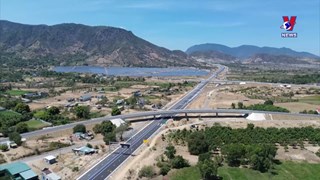International organisation urges Vietnam to combat wildlife trafficking
A representative of the World Wildlife Fund (WWF) Vietnam has proposed that the Southeast Asian nation needs to enhance cooperation in investigating and tracing wildlife trafficking cases, as well as arresting and prosecuting leaders of these crime rings.
 Wildlife smuggling activities have become increasingly complex in recent times. (Photo: VietnamPlus)
Wildlife smuggling activities have become increasingly complex in recent times. (Photo: VietnamPlus)Speaking to VietnamPlus reporters on December 5, Nguyen Van Tri Tin, Director of the WWF-Vietnam’s wildlife conservation programme, noted that in recent years, Vietnam has completed its legal framework to effectively control the trade of wildlife. However, implementation by law enforcement to prevent illegal wildlife trading and smuggling has yet to achieve comprehensive results as expected.
Recent trends indicate that the demand for the illegal buying and selling of wild animals and products remains widespread. This contributes to market demand for such illegal products as rhino horns, elephant tusks, and parts of tigers, pangolins, bears, turtles, and snakes.
In particular, these activities occur through border checkpoints, and the methods of violation are increasingly sophisticated, making detection difficult, stressed Tin.
The organisation has proposed that the Vietnamese Government needs to take decisive actions, promoting the role of diplomatic agencies in exchanging information and signing agreements on legal cooperation to investigate and trace trans-border wildlife crimes.
Tri said biodiversity conservation, and the prevention of illegal trade and consumption of wild animals are society’s direct responsibility.
The role of management and law enforcement agencies are crucial in dealing strictly with violations, serving as a deterrent for individuals concerning legal action in case of violations.
“It's time for consumers to change their habits of using wildlife and wildlife products. Society needs to condemn and boycott illegal wildlife use, creating waves to protect wildlife and promote positive actions within the community," he said.
According to him, WWF-Vietnam has been continuously enhancing cooperation with the Ministry of Natural Resources and Environment and the Ministry of Agriculture and Rural Development. The aim with this teamwork is to strengthen collaboration in addressing the root causes of these threats and challenges to nature conservation and biodiversity through nature-based, nature-respecting, and nature-friendly approaches.
Tin went on noting that measures to control the illegal buying, selling, and transportation of wildlife and related products will vary depending on the nature of the violators and the violations./.
| Some regulations on wildlife management and protection: - In the 2017 Law on Forestry, Article 9 prohibits the illegal hunting, catching, raising, caging, slaughtering, storing, transporting and trade of forest animals; as well as the illegal collection of specimens of forest plant or animal species. - In the 2018 Law on Biodiversity, Article 7 prohibits the hunting, catching and exploitation of wild species in strictly protected zones of protected areas; along with the hunting, catching and exploitation of parts of bodies, and the illegal slaughtering, consumption, transportation, purchase and sale of those in the lists of endangered and rare species of protection priority. - In the 2014 Investment Law, Annex 3 lists prohibited business sectors, including the lists of critically endangered and rare wild species that are banned from exploitation and use for investment and business purposes. - The Prime Minister’s Directive No. 03/CT-TTg in 2014 and Directive No. 28/CT-TTg in 2016 on urgent solutions to prevent and fight against wildlife crime feature strong solutions to combat this crime. - The 2015 Penal Code, revised and supplemented in 2017, stipulates that those breaking regulations on protection of wild animals and endangered and rare wild animals are subject to penalties of up to 15 years in prison, and fines of up to 2 billion VND for individuals and 15 billion VND for legal entities. |













